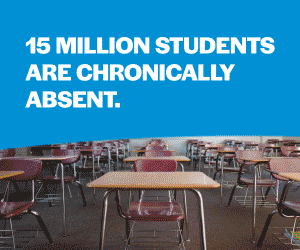
The role of formative assessment in STEM
Formative assessment in STEM plays a critical role by providing real-time insights into students' thought processes and understanding, creating opportunities for adjustment and growth throughout a project or lesson. Unlike summative assessments that offer a final measure of achievement, formative assessments capture learning as it happens, providing feedback that guides students forward. This kind of assessment not only improves academic performance but also aligns with STEM’s emphasis on problem-solving, critical thinking, and iteration.
Example: Implementing conversation-based assessments can significantly improve engagement. When teachers talk through a student's work process, they gain insights into the student's understanding and problem-solving strategies, as well as uncovering misconceptions that a written test might miss.
To make assessments in STEM truly student-centered, educators must incorporate a mix of observation, self-assessment, and peer feedback. These methods are essential for meaningful STEM assessment, ensuring students actively engage in their learning journey. Here are some effective strategies:
- Learning Portfolios: Portfolios allow students to document their learning journey, capturing their projects, reflections, and problem-solving processes over time. This approach shifts the focus from a single grade to continuous improvement, making learning visible in a personal and comprehensive way.
- Project-Based Reflections: Regular reflections at critical stages of a project help students connect theory with practice. By prompting students to explain their process, identify challenges, and strategize improvements, educators support the development of metacognitive skills, crucial in STEM fields.
- Self and Peer Assessments: Traditional teacher-driven assessments often leave students passive, waiting for a judgment from above. By shifting the assessment process to include student and peer-driven elements, we challenge this passive role and transform students into active participants in their learning journey. Self-assessment and peer review aren’t just exercises—they’re radical shifts that place students at the center, a counterbalance to the limitations of teacher-centered education. This approach fosters accountability, encourages students to engage deeply with the learning objectives, and builds a supportive classroom culture where students learn from each other and become adept at identifying areas for growth.
One of the best tools I have seen utilized for STEM assessment is using an engineering notebook. This can be a physical or digital notebook. Either version allows students to reflect, rethink, and revise their work. Another wonderful tool is using photo journaling. Photo journaling allows the teacher to capture the student learning process in a formative way, without making the focus of the learning a specific outcome.
In this way, both engineering notebooks and photo journals shift focus away from the tracking of student progress to instead transforming how students see themselves as learners. When we move away from grades or specific outcomes as the ultimate goal and instead adopt a growth-centered approach, we empower students to take risks, embrace challenges, and learn from failure.
This transformation is not merely about assessment; it is about building a future-focused learning culture that champions growth, resilience, and an enduring passion for discovery. By making assessment a dynamic part of the learning process, we prepare students not just for exams, but for the complexities and challenges of the world beyond the classroom.
Jason McKenna is V.P. of Global Educational Strategy for VEX Robotics and author of “What STEM Can Do for Your Classroom: Improving Student Problem Solving, Collaboration, and Engagement, Grade K-6.” His work specializes in curriculum development, global educational strategy, and engaging with educators and policymakers worldwide. For more of his insights, subscribe to his newsletter.



























